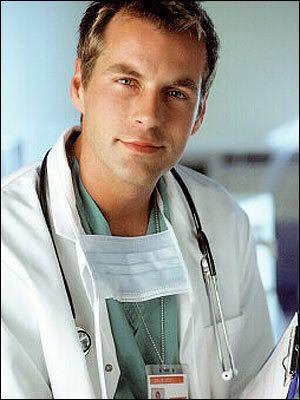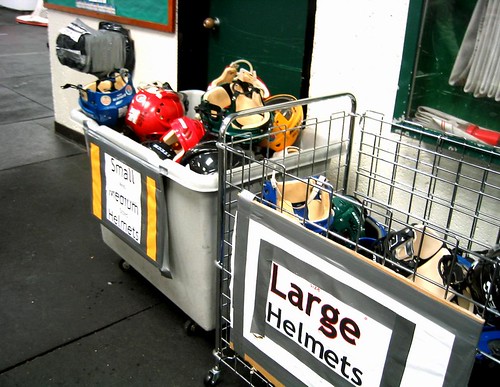
As I understand it, the first kind requires a small army of people who can diagnose, read pictures, are compassionate and kind and have time for people, enjoy being exposed to colds, flus, and the chicken pox, and who don't mind popping boils or checking on hemorrhoids. This group used to include people who liked to birth babies, make house calls, and be there with the priest (or Rabbi) at the end of life, but not so much now a days. Now it's more about prescriptions and vaccinations, but the idea remains the same. In general, the costs from these visits is reasonably low, with the possible exception of some expensive lab tests which can run into the thousands.

The second kind require specialists but they ALSO have to be good with people. They deal with cancer, lupus, MS, CFS, CP, benign brain tumors, endocrine fuck ups, and a hundred thousand other chronic problems that people suffer from. They have long term relationships with their patients, like the first folks, but they are also only seen BECAUSE you are sick, like the 3rd folks. This coverage is typically much more expensive than your typical well check or pap smear; they perform more tests, and may offer new, cutting edge science to help with specific problems. Their role is to improve the quality of life of people, as well as save lives and detect illnesses. Nothing easy about this job, folks.
So then there's the 3rd kind, which is kind of like the 2nd kind, except these are the smarty pants who will fix your daddy's broken artery, who shave bones, mend burns, and play Lotto with nerve endings. Remember Lotto? Ok. So these folks really don't have to have the people skills of the first or second group. They work fast and furiously to save life or limb (or both), and have no time to connect to the patient as a whole person, it's all about the brains leaking out of the helmet, or controlling the stroke that is currently paralyzing that sweet old woman from down the block. They perform miracles, or try to, and are the front line of our critical care medical personnel. This part is UBER expensive, requiring every resource available, including ambulances (by air, land, and sea), surgeries, medicines, anesthetics, tests, pictures, etc.
How do other places figure out how to include 1) everyone who needs medical coverage (that'd be everyone) and 2) all the people in the first and third, and as many in the second group as humanely possible (do you eliminate the cancer specialists? the endocrine specialists? the dermatologists?) without breaking the bank? Evidently, France is the #1 country for health coverage (Bismark system) in terms of statistics, but the Nordic countries for customer satisfaction. Australia and Japan both scored well for survivor rates, and many Asian countries for combining a private/public system that stresses diet and exercise (gentle, like tai chi) as a method for dealing with stress, aging, and genetic propensity for disease. In Canada, there are abundant sport and leisure halls across the country, very low cost or free for residents. They generally include skating, swimming, and have gyms where people row, step, or walk/run according to their ability. They don't need a membership to an expensive YMCA or gym, they just need to walk or drive down the road. Kids are 30% leaner there, parents do more with sport on a regular basis (ok, a lot of this is hockey, I know, but still - they are getting out on the ice and mooooving!), and honestly, there is more FUN to be had within the family doing stuff than sitting around playing video games! They GET it!

It costs less to keep a healthier population healthy. Per capita, we spend way more than any other country in the world on health care (about US$17,000 per person per year), where as it's closer to US$6000 in Canada and US$4500 in Australia (possibly even less in France, where Viagra isn't covered because, as we heard, ze franchmen zey do not need zis!). And we still don't get it right! Have you known someone who went years without getting checked at the doctor (did they say outright that this is because of money? My friends won't say it outright, but a $20+ co-pay for every doctor visit sure adds up!), or kids who don't get mental health assistance, or parents who don't get marriage counseling etc etc etc. This is a long list, and we haven't even gotten to people who can't afford cancer treatment, who don't test their blood or take meds for diabetes or high blood pressure. It does come down to being the one who is responsible for your own health (and of the health of the people whom you love the most - parents, children, spouses, siblings etc.). If you choose to slack off every day, eat junk, and don't eat healthy foods (meaning foods that assist your body in being healthful), if you choose to eliminate organic from your grocery list because it's more expensive, realize that that choice may have very expensive consequences. Cancer is SO freaking expensive. But that's a far away bridge, hopefully one you don't have to cross ever, but god forbid, and worse, it happens to your son or daughter, you will have to live and die with those burdens.
 There is no easy way to shift from a system that seeks only to get ahead and earn the holy dollar to one that respects the integrity of life of all Americans. Mistakes are going to be made. But basically there needs to be a card that says "this is me, and I am entitled to live here and be healthy". A beaurocracy already exists, Medicare and Medicaid already care for so many Americans. Tightening up this ship, and making this coverage available to every single American is not that far away - but it does depend on the heartfelt charity of our leaders, reverence for a high quality of life, and yeah, a little elbow grease from your average shlump. I will send out this prayer to your health, because you are alive, and you, just like me, have a body that requires fine tuning. Not being perfect relates to our physical and non-physical bodies. As hard as it will be to figure this out, there is almost nothing more important to the health and happiness, the potential productivity, future economy, and greatness, of this incredible nation than taking care of ourselves 100%.
There is no easy way to shift from a system that seeks only to get ahead and earn the holy dollar to one that respects the integrity of life of all Americans. Mistakes are going to be made. But basically there needs to be a card that says "this is me, and I am entitled to live here and be healthy". A beaurocracy already exists, Medicare and Medicaid already care for so many Americans. Tightening up this ship, and making this coverage available to every single American is not that far away - but it does depend on the heartfelt charity of our leaders, reverence for a high quality of life, and yeah, a little elbow grease from your average shlump. I will send out this prayer to your health, because you are alive, and you, just like me, have a body that requires fine tuning. Not being perfect relates to our physical and non-physical bodies. As hard as it will be to figure this out, there is almost nothing more important to the health and happiness, the potential productivity, future economy, and greatness, of this incredible nation than taking care of ourselves 100%.

